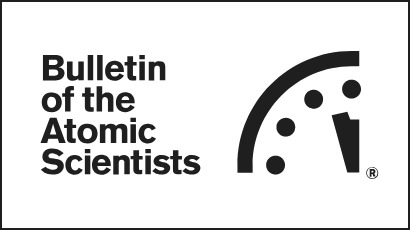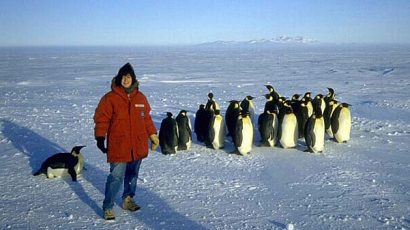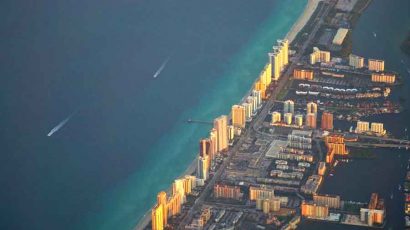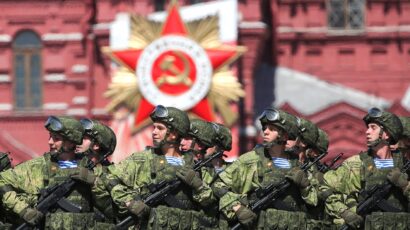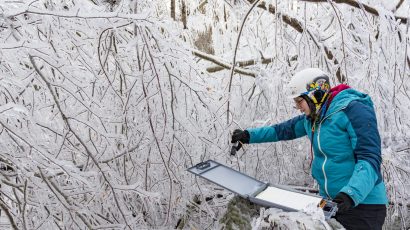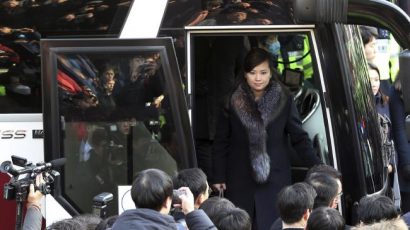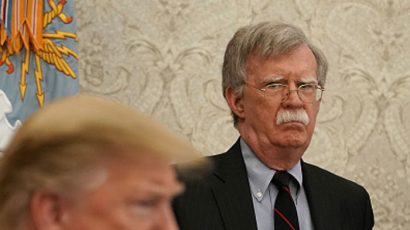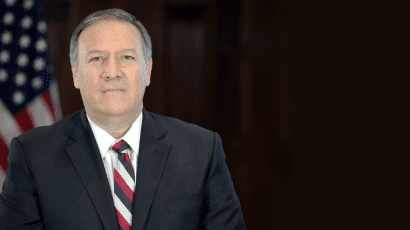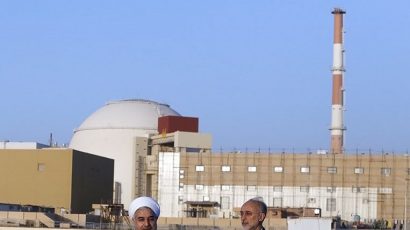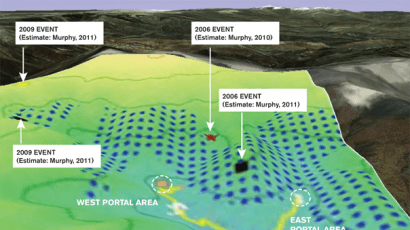Search results for
Susan Solomon: at the frontline of research on the ozone layer and its role in Earth’s climate
An interview with Susan Solomon, who solved the mystery of the Antarctic ozone hole and has won one of the world’s biggest science prizes.
An illustrated history of the world’s deadliest epidemics, from ancient Rome to Covid-19
An illustrated history of the world’s deadliest epidemics, from ancient Rome to Covid-19 January 16, 2023 How does the COVID-19 pandemic compare to viral outbreaks of the past? As the world lurches into a fourth year of the COVID-19 pandemic, the official death count based on public disclosures is currently 6.7 million, but estimates of … Continued
Warning the most vulnerable about climate change. In a red state.
John Morales made history as the first degreed meteorologist on Spanish TV. And he's breaking the mold in another way, arguing in favor of facts and evidence for climate change.
Why Obama should declare a no-first-use policy for nuclear weapons
An American no-first-use commitment would reduce the risk of nuclear war at a time when arsenals are growing and tensions are mounting—particularly in Asia.
Nuclear Notebook: Russian nuclear weapons, 2023
Russia’s nuclear arsenal includes a stockpile of approximately 4,489 warheads with 1,674 strategic warheads deployed on ballistic missiles and at heavy bomber bases, while an approximate additional 999 strategic warheads—along with 1,816 nonstrategic warheads—are held in reserve. The Russian arsenal continues its broad modernization intended to replace most Soviet-era weapons by the late-2020s.
Let science be science again
The March for Science affirms the idea of science as a great equalizer. Like the American dream, science can empower individuals and lift communities.
Establishing the next president’s national security agenda: Part I
With the presidential primaries ending this week, it's time to focus on the general election and the key national security challenges that the next president will face. Over the next three columns, I will outline what national security issues I think the candidates should be debating.
Making your own ice storm: Latest in climate science research
The notorious ice storm of 1998 was devastating to New England. With climate change, more such storms are expected—so what will they do to the region's forests? To find out, researchers created the first-ever artificial ice storm, in the controlled conditions of an experimental forest.
The underwater Amazon: Kelp forests are crucial to the fight against climate change. Here’s how they could be saved.
Throughout the world's oceans, forests of kelp—crucial to biodiversity, carbon sequestration, and coastal protection—are under threat from climate change, pollution, and human development. Will they disappear before we fully understand their massive environmental benefits?
Pyongyang, PyeongChang, and the limits of Olympic diplomacy
North Korea is making veiled conciliatory gestures to the South, but remains firmly committed to its nuclear weapons.
The war bill
The Menendez-Kirk legislation would push the United States closer to a military confrontation with Iran.
War and Peace: Bolton and Trump tell a confused story about possible military action against Iran
While reporting the chaotic and shifting signals about the possibility of war with Iran, the major news media have not done a particularly good job of explaining why major US military action in Iran would be, in practical terms, so likely to end in disaster.
Kim Jong-un’s long game
Less than a month after the first-ever US-North Korea summit, news reports began emerging that Pyongyang is continuing to develop its nuclear program, just as it was doing before the June 12th meeting in Singapore between Donald Trump and Kim Jong-un. This shouldn’t come as a surprise. While these reported activities violate UN Security Council … Continued
Should nuclear power be expanded significantly into developing countries?
As demand for energy rises in the developing world, nuclear power could provide one partial solution to the global climate crisis. Large countries such as Russia and China are both investing in nuclear power and positioning themselves to export technology and expertise. But whether developing countries should incorporate nuclear energy depends on a range of factors such as local energy demand and the availability of other energy sources. They should also consider how competitive nuclear energy would be. Most important, countries that go nuclear should have sufficient technological, industrial, and political stability.
Memorial Days: the racial underpinnings of the Hiroshima and Nagasaki bombings
This past Memorial Day, a Minneapolis police officer knelt on the throat of an African-American, George Floyd, for 8 minutes and 46 seconds. Seventy-five years ago, an American pilot dropped an atomic bomb on the civilian population of Hiroshima. Worlds apart in time, space, and scale, the two events share three key features. Each was an act of state violence. Each was an act carried out against a defenseless opponent. Each was an act of naked racism.
Contemplating a third nuclear test in North Korea
Shortly after its failed April 13 rocket launch, North Korea was widely expected to conduct its third underground nuclear test. Such a test would have fit the pattern of the first two nuclear tests, both of which followed failed rocket launches and international condemnation. And Pyongyang has compelling technical, military, and political reasons to conduct a third nuclear test that would demonstrate it can miniaturize nuclear warheads to fit on a missile, making its nuclear arsenal more threatening.
The enormous risks and uncertain benefits of an Israeli strike against Iran’s nuclear facilities
As Israel weighs how to respond to Iran’s attack, targeting its nuclear facilities might be strategically disadvantageous.
Africa’s pursuit of nuclear power
In Africa, nearly every aspect of human development (health, agricultural, educational, or industrial) depends upon reliable access to modern energy sources. Therefore, it's worth investigating whether nuclear power can safely alleviate energy shortages and optimize an energy mix consistent with the national interests of African countries.
